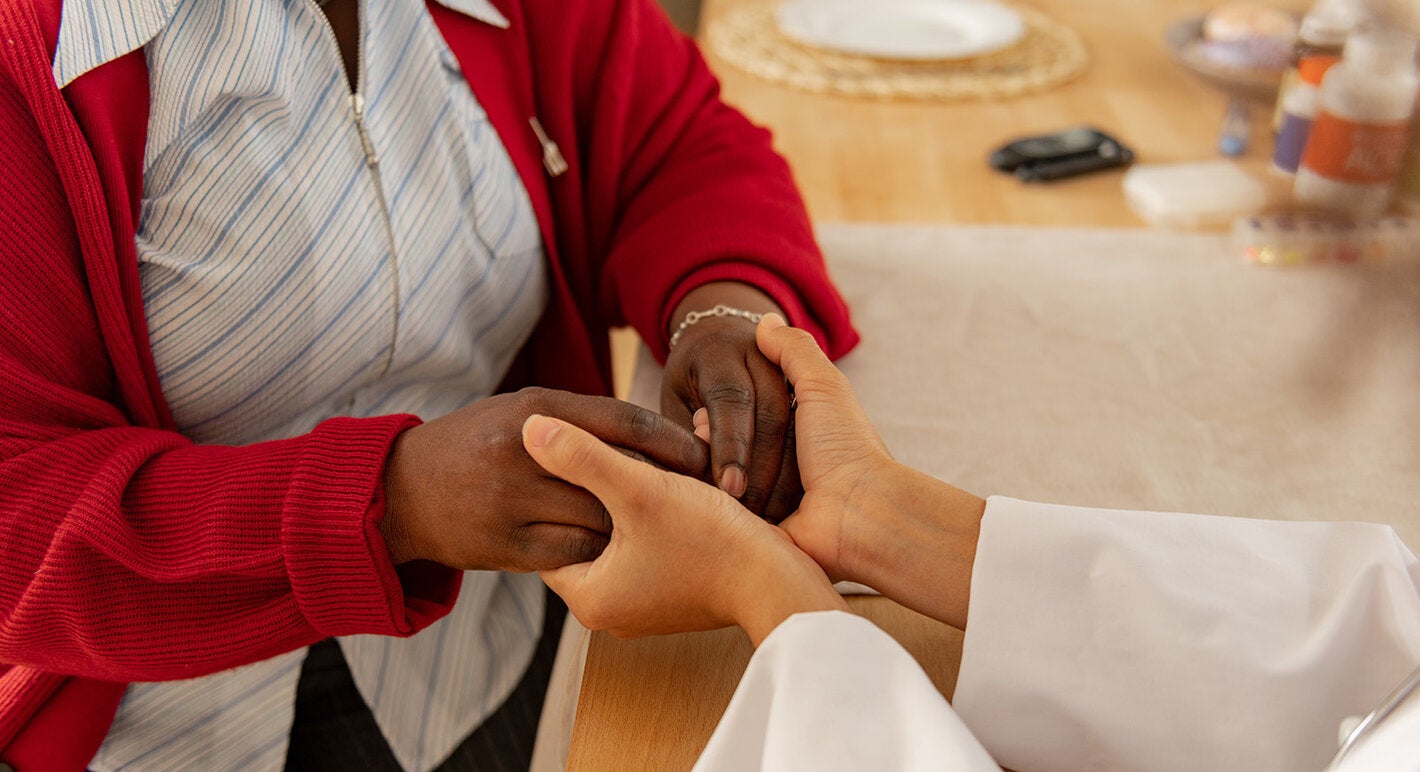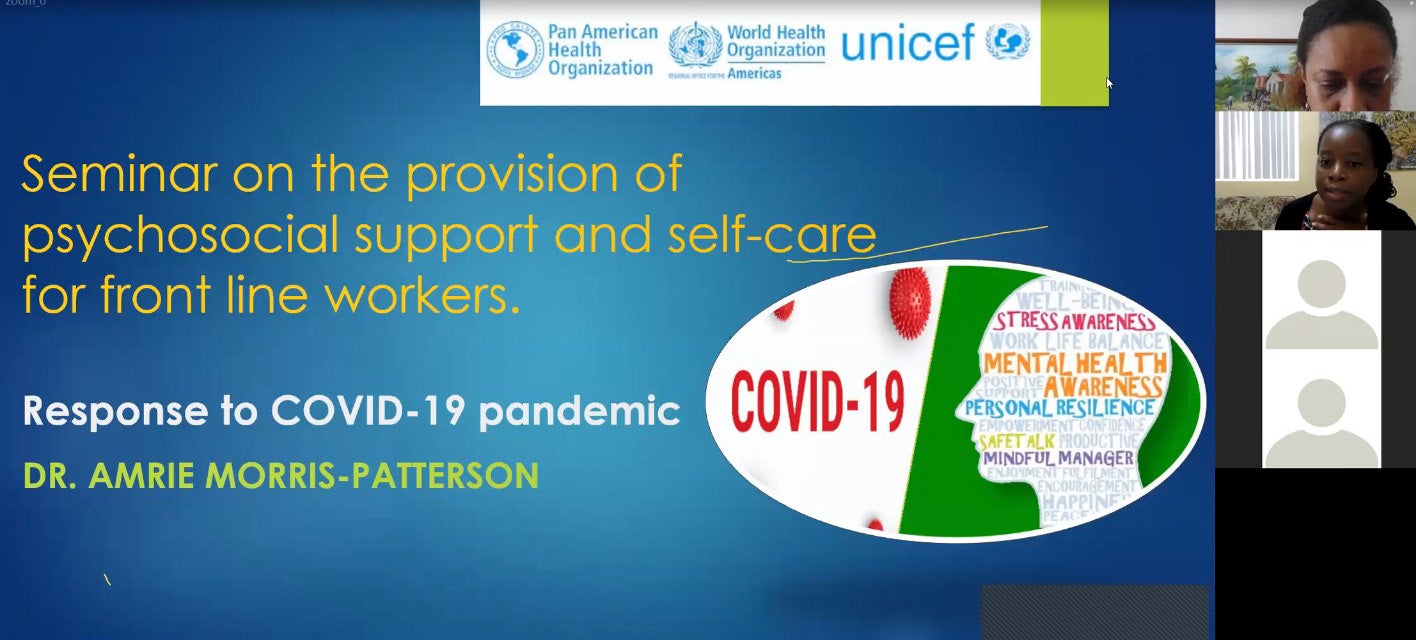
Bridgetown, Barbados, 02 August 2020 (PAHO/WHO) — On March 11, 2020, the World Health Organization sent the islands of Barbados and the Eastern Caribbean States along with its regional neighbours, into a heightened form of anxiety when its Director General Dr Tedros declared COVID-19 as a global pandemic.
Simultaneously, some of our Eastern Caribbean Countries began reporting their first imported case (St Vincent and the Grenadines, March 11; St Lucia, March 13; and Antigua and Barbuda, March 13). The governments’ response was immediate as countries commenced implementation of stringent public health measures by imposing significant restrictions on movement by instituting curfews, lock downs culminating in closure of borders as the infection slowly progressed with increasing numbers of imported cases.
In the advent of these stringent lockdown measures and the drastic changes to every-day living as a consequence of the COVID-19 pandemic, countries were rapidly identifying the need to prioritize Mental Health and Psychosocial Support (MHPSS) for their citizens as the mental health impact became obvious. These effects were deemed multifactorial and include biological, behavioural and environmental determinants. The need was and still is broad and complex, in ensuring that the messaging of how, where and when information, services and social support can be accessed for all persons, especially the vulnerable populations.
Dr Tedros Adhanom Ghebreyesus, Director-General of the World Health Organization (WHO), pointed out at the beginning of the pandemic that the impact of the pandemic on people’s mental health is already extremely concerning. This was also echoed by the Minister of Health of Grenada (May 2020) Nickolas Steele who cautioned us that we must be mindful that we also have a very real and very critical mental health battle on our hands.
Inclusion of Community Leaders
The inclusion of Community Leaders in the delivery of MHPSS was immediately identified as a possible solution and after a prevalence of 25 confirmed cases in Barbados and the Eastern Caribbean was noted on March 25, 2020, the first of four webinars commenced on March 31. It was recognized that the community leaders will require orientation on how to provide the basic emotional and practical support to affected people utilizing Psychological First Aid (PFA).
To support countries in their delivery of PFA adapted to the COVID-19 context for Barbados and the Eastern Caribbean Countries, the Pan American Health Organization (PAHO) in collaboration with the United Nations Children’s Fund (UNICEF) and the Organization of Eastern Caribbean (OECS) Secretariat, developed a targeted strategy to empower community leaders to become engaged. The term ‘Community Leader’ within this context was quickly understood to envelope all persons who have an influential role; church leader, teachers, managers of youth programmes, hotline workers and parents. Trusted and respected community leaders may already be working as frontline providers of psychosocial support to their communities and this training was designed to strengthen their understanding of COVID-19 and the impacts on mental health, form community networks and become familiar with referral pathways for persons where an increased level of support is needed.
The team then engaged community leaders in Barbados and all the Eastern Caribbean Countries to participate in these Webinars. The results were overwhelming, over 1,350 participants attended with the final webinar attended by over 1000 participants (the maximum capacity of the virtual platform).
The training was delivered with the support of Dr Amrie Morris-Patterson, Consultant Psychiatrist and took place between March 31st to April 8th 2020.
Individual participants have reached out to PAHO to express their gratitude for the information delivered in these seminars. While the interest is demonstrated by the overwhelming numbers that participated, particularly in the final session, feedback such as that received below demonstrates the true effect of the seminars:
‘The session was very informative and enlightening. It helped me to become more aware of the different issues most persons are facing during a crisis or personal underlying conditions in their home, school, church or community.” (Avilda Rolle)
Words of appreciation and gratitude to you and the team who facilitated such a timely meeting. Looking forward to the next one. Ready and willing to give our support to you. “(Sharon-Rose Gittens, President of Barbados Association of Professional Social Workers)
As the pandemic continues the delivery of MHPSS remains a top priority for Governments as their citizens grapple with the ever-changing environment in which they have to operate. Through these webinars PAHO, in collaboration with UNICEF and OECS, has empowered community leaders to collaborate and offer psychosocial support to communities and also encourage the sharing of experiences and concerns, especially across countries. However, there is still a need for greater coordination amongst all involved in the response.
PAHO is presently providing technical support to countries to develop long-term coordinating mechanisms and community approaches to address emergencies and pandemics, placing emphasis on whole-of-government, whole-of-society approaches as countries move towards strengthening community resilience in their national MHPSS plans.




